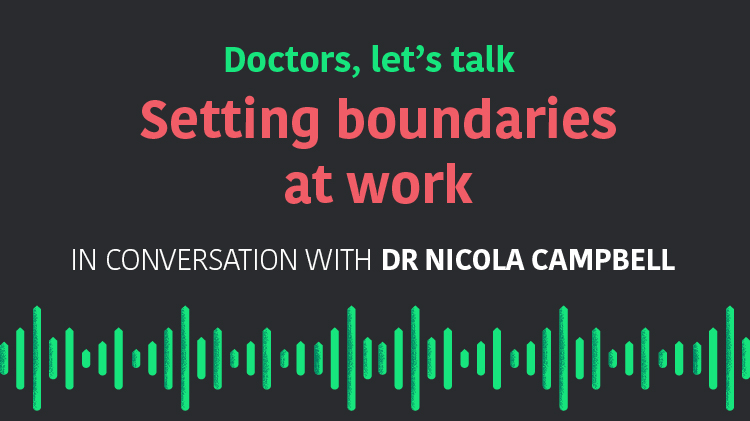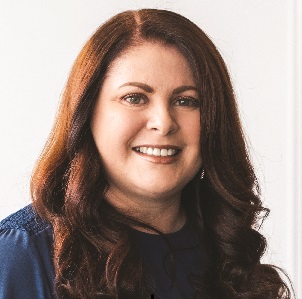Intimate partner violence
16 Dec 2024
In 2022-23, one woman was killed every 11 days, and one man was killed every 91 days, through IPV.1 The statistics for women are incredibly high, but IPV can occur regardless of gender, age, education and socio-economic status.
The Australian Institute of Health and Welfare (AIHW) defines IPV as “any behaviour within an intimate relationship (current or previous) that causes physical, sexual or psychological harm.” This can include physical and sexual violence, coercive control, and emotional, economic and technology-facilitated abuse.
When it comes to disclosures of IPV, doctors play a vital role in the treatment and support of victims (and sometimes perpetrators).
Case study
Ruby was a regular patient, and Dr Carlton noticed a gradual change in her mood. She had recently moved in with her boyfriend, but also lost her job, so he put her anxiety down to financial stress.
Until she came in with a large cut over her eye.
He asked Ruby to sit on the examination table, but she visibly winced as she moved. Dr Carlton asked if she had other injuries, and Ruby broke down.
“He said it wouldn’t happen again,” she said, as she lifted her shirt to show dark bruising around her ribs and torso.
Further discussion revealed that Ruby’s unemployed partner had prevented her from going to work, so her boss eventually fired her. Now he was angry because they had no money. The coercive control increased gradually, but the abuse recently became physical.
Dr Carlton’s first instinct is to call the police, but Ruby begs him not to tell anyone. She says the violence has been escalating and she’s concerned for her safety if her partner finds out she has told anyone. She confirms she has a plan to leave, but that she needs to leave in her own time, when it’s safe for her to do so.
Dr Carlton dresses Ruby’s wound, and she advises him she feels safe to return home. He asks her to return for follow-up in a few days, so that he can think about next steps.
Medico-legal discussion
- Should Dr Carlton disclose the abuse and, if so, to whom should it be reported?
Ruby has a right to privacy, and she has expressly asked Dr Carlton not to share the information with anyone – including the police. Dr Carlton accepts that he must respect Ruby’s decision, as his research indicates that reporting violence without consent can put the patient at greater risk of harm.
- Does he have a mandatory obligation to report the abuse?
Dr Carlton and Ruby are both located in Victoria, so the answer is no.
The Northern Territory (NT) is the only state or territory in Australia which has laws mandating the reporting of domestic violence. Under s.124A of the Domestic and Family Violence Act 2007, every person over the age of 18 in the NT must report to the police if they believe a person has caused, is causing or is likely to cause, serious physical harm to someone with whom they are in a domestic relationship. Failure to report can result in a fine of up to $20,000.
If there are children involved, a disclosure of IPV can trigger a mandatory notification to child protection in some states and territories. If your IPV patient has children, you should seek advice from your medical defence organisation (MDO).
- Is there ever a circumstance when privacy should be breached, regardless of the patient’s wishes?
This is a rare exception, and one which should include a discussion with your MDO, as the ramifications can be significant for the patient.
The privacy legislation makes provision for a disclosure “…where it is unreasonable or impracticable to obtain consent to the use or disclosure, and you reasonably believe the use or disclosure is necessary to lessen or prevent a serious threat to the life, health or safety of any individual, or to public health or safety”.
The threshold is high – for example, the patient says her partner is armed and waiting in the car outside, and he has threatened to shoot her once she walks out the door. This might warrant a call to the police. However, the possibility of an assault at some time in the undefinable future would probably not meet the test.
Take-home message
Sometimes the patient’s doctor is the only person they feel safe disclosing the abuse to. This is both a privilege and a burden, particularly when the patient doesn’t consent to you disclosing the abuse to anyone else.
How can you help a victim of IPV?
- Be aware of the clinical indicators for IPV and enquire with sensitivity.
- Listen without judgement when IPV is disclosed, and start to build trust.
- Encourage the patient to develop a safety plan.
- Provide details of available support services.
- Document any injuries clearly in the notes, as they may be necessary for court if the patient decides to pursue criminal charges.
Above all, it is important to remember that one of the key elements in IPV is the victim’s loss of empowerment. So, where possible, respect the patient’s autonomy and help them to regain the confidence they need to make decisions in their own best interests.
Reference
-
https://www.aihw.gov.au/family-domestic-and-sexual-violence/responses-and-outcomes/domestic-homicide
Stay updated with the latest medico-legal content |
Subscribe to MDA National’s biannual Member publication, Defence Update, for the latest medico-legal updates, articles and case studies.

Doctors, Let's Talk: Setting Boundaries At Work
A conversation with Nicola Campbell, Psychiatry Registrar, that explores the necessity of setting professional boundaries as a Junior Doctor.
07 Dec 2022

Doctors, Let's Talk: Your Support Network Is Your Net-Worth
A conversation with Nidhi Krishnan, Paediatric Registrar, that explores the value of building a strong network as a Junior Doctor.
07 Dec 2022

Doctors, Let's Talk: Are Retreats Worth The Money?
A conversation with Dr Emily Amos, General Practitioner, International Board Certified Lactation Consultant, and registered mindfulness teacher, that explores the utility of mindful retreats and self-care among Junior Doctors.
07 Dec 2022

Doctors, Let's Talk: Is Quitting Medicine Ever The Answer?
A conversation with Dr Ashe Coxon, General Practitioner, career counsellor, and founder of Medical Career Planning, that explores the issue of dealing with career uncertainty as a Junior Doctor.
07 Dec 2022


